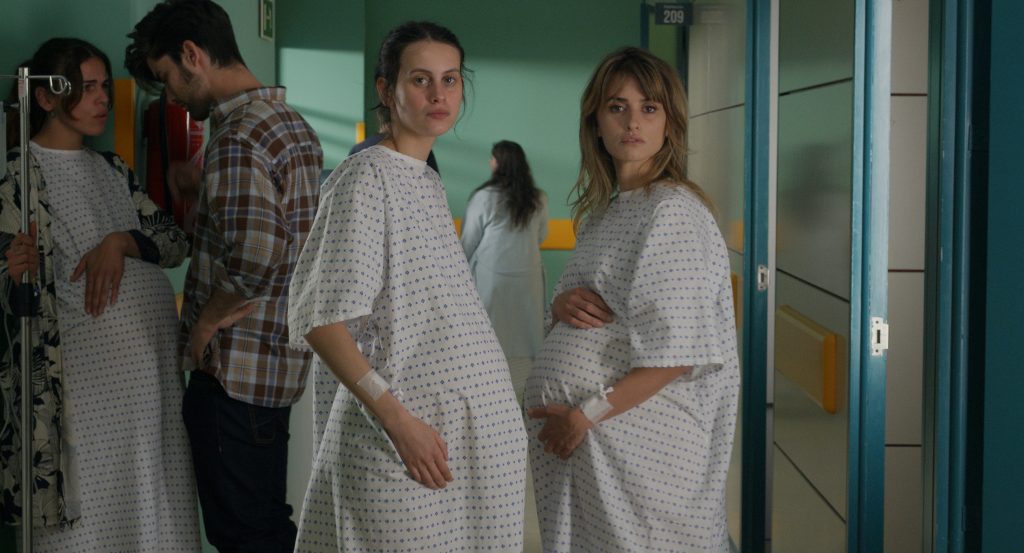
Pedro Almodóvar is a filmmaker who has been regaling audiences with his fantastical and deeply engrossing stories for decades. Among his most celebrated works are Women on the Verge of a Nervous Breakdown, All About My Mother, Talk to Her, and Volver. His ability to flesh out the inner thoughts and characteristics of seemingly ordinary protagonists is mesmerizing, as is the connection he creates between them as they find shared interests and desires. Reuniting with frequent collaborator Penélope Cruz sets up a typically compelling tale in his latest film, Parallel Mothers, one of the strength and complexity of family bonds.

© El Deseo, photo by Iglesias Más. Courtesy of Sony Pictures Classics.
Janis (Cruz), a photographer, finds a kindred spirit in her much younger roommate at the hospital, Ana (Milena Smit), when they are both pregnant and about to give birth. As she raises her daughter, Janis pursues a long-awaited project led by Arturo (Israel Elejalde), the father of her child, to excavate the remains of her grandfather that lay buried in a nearby field following his execution years earlier. As Janis begins to contemplate the meaning of family following a harrowing discovery, Ana reenters her life and becomes a crucial and loyal part of her daily routine.
This film’s title indicates that Janis will not be its only focus, and its poster memorably depicts a lactating nipple, referencing both the singular nature of motherhood and the European sensibilities that permit more uncensored content that would certainly be deemed objectionable and scandalous in America. That is hardly new for Almodóvar, who has for years been telling adult stories that feature a great deal of sexual content that doesn’t feel extraneous or gratuitous, but instead a proper expression of the way humans behave that is often deemed unfit for certain audiences. In this case, the film’s poster is likely more provocative than its content, which focuses more on the state of motherhood than the moment of birth.

© El Deseo, photo by Iglesias Más. Courtesy of Sony Pictures Classics.
As he has done many times in the past, Almodóvar brings to life two people who come from radically different backgrounds and finds the circumstances to unite them. Janis is successful and has high-powered friends who can help offer her work the moment she wants to return to it, and she is able to make the decision to raise a child on her own because she has the means. Ana, on the other hand, lives with her wealthy, overbearing actress mother, and she has no concept of what she is about to endure when she becomes pregnant at a young age. Janis has plenty to teach Ana about what will come next for her, while she is also able to see a glimpse of a past she can barely remember and the occasional euphoria that not knowing what the future may hold can deliver.
Parallel Mothers skillfully combines elements Almodóvar has used extensively before, showcasing eye-popping colors and an energetic, haunting score by Alberto Iglesias, his signature composer for more than twenty-five years. Cruz easily inhabits the role of Janis, imbuing her with grace and determination, and Smit, in her second film credit, is a remarkable discovery, making Ana deeply intriguing but also purposely unpolished, uncertain yet of who she wants to be. This is also not simply a story of two mothers looking ahead to the future, but also a potent exploration of the history of Spain, one that contains many open wounds that have yet to be healed. Framing that examination of time and memory through the relationship of two women of different ages is particularly effective, and, as always, Almodóvar’s work becomes more appealing and fulfilling with every new layer of meaning added to it.
Grade: B+
Parallel Mothers opens in theaters on Friday, December 24th.

